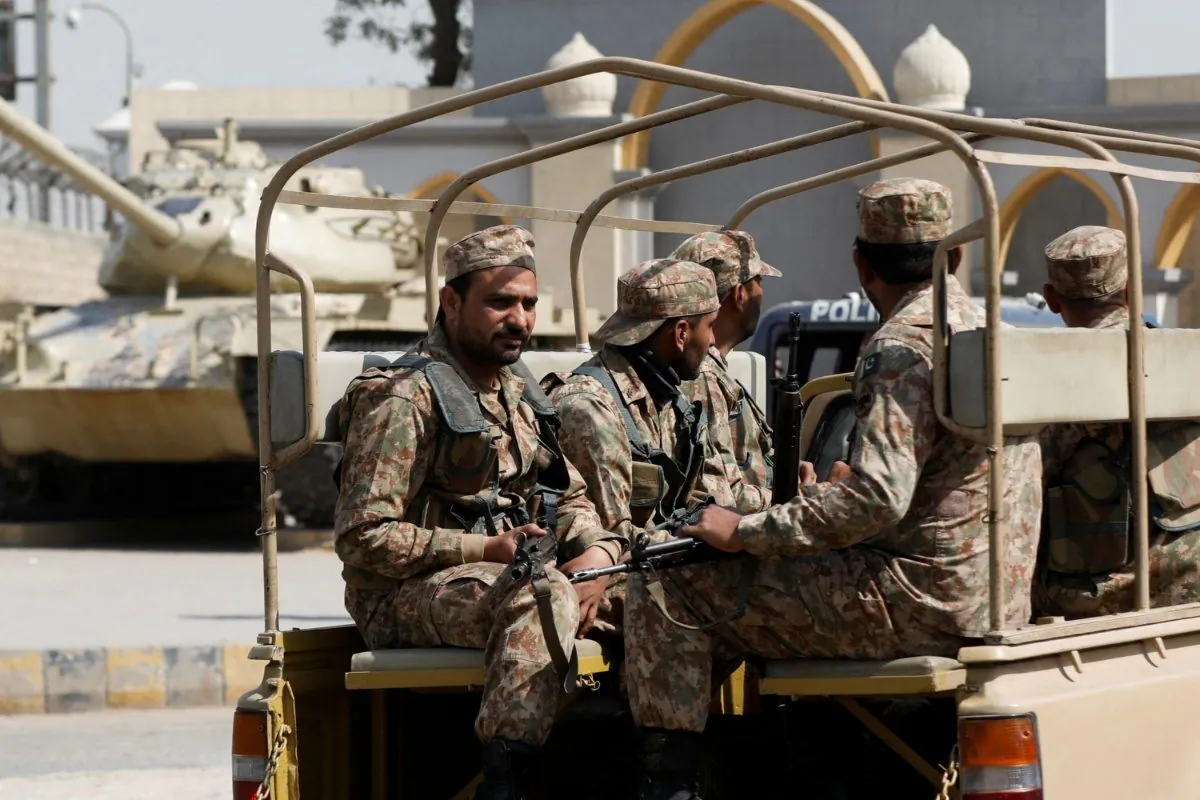Tufail Dawar, a resident of Mir Ali in the North Waziristan region of Pakistan, recounted a harrowing day on April 30 when he and his fellow villagers were trapped in their homes by gunfire outside.
“We couldn’t go out for the entire day as security forces and militants engaged in a fierce shootout during a military operation in our village,” Dawar explained. During the crossfire, one of his cousins was injured and is currently receiving treatment in a local hospital.
Resident of the restive tribal districts of Pakistan along the Afghan border and adjacent areas tell VOA Deewa that due to increasing military operations many areas have been declared no-go zones, restricting their daily mobility.
“Our village has been declared a no-go zone by security forces and no development work is happening. There are no sources of livelihoods and many families have left the area due to military operations,” Maulana Naqibullah Khan told VOA Deewa over the phone.
Khan said that in the past three months locals had negotiated with the security forces to secure the release of nearly 60 residents who had been arrested after being accused of providing food and medical treatment to the militants.
“The situation has deteriorated; we have seen helicopter shellings in December 2023, and the security forces operation continues. Locals have suffered property and human losses and we have held meetings, but it persists,” said Muhammad Amin, a village council member in Kadera, a community of 900 homes in northwestern Pakistan.
The Pakistani military says that army, police, intelligence and other law enforcement agencies are carrying out more than 100 operations daily against terrorism in the country.
Major-General Ahmed Sharif, a spokesperson for Pakistan’s military, said during a live broadcast news conference Tuesday that security forces have conducted 13,135 small and major intelligence-based operations so far this year against terrorists and their facilitators, “during which 249 terrorists were sent to hell while 396 were arrested.”
VOA reached out to Pakistan military media wing Inter Services Public Relations official Brigadier Ghazanfar via WhatsApp seeking further details on the military operations in the region, but he has not responded.
Asif Durrani, Pakistan’s special representative for Afghanistan, told a gathering organized by the Institute of Regional Studies on Tuesday that there has been a 60% increase in terrorist attacks in Pakistan since the Taliban seized power in Afghanistan in 2021.
Haq Nawaz, a Peshawar-based analyst, said Pakistan lacks a clear strategy to combat terrorism.
“Pakistan has adopted both the dialogue and military operations strategy in the past, but terrorism is on the rise in Pakistan and Pakistan’s military and political forces should work together to devise a new strategy,” he said.
The Center for Research and Securities Studies (CRSS), an Islamabad-based think tank tracking terrorism in Pakistan, has said that terror-related fatalities surged 17% in the first quarter of 2024 compared with the corresponding period in 2023.
The report says 432 people were killed and 370 others were injured in the first three months in 245 attacks and military operations. The provincewise breakdown is not yet available, but CRSS says that 92% of the violence occurred in KP and Baluchistan.

